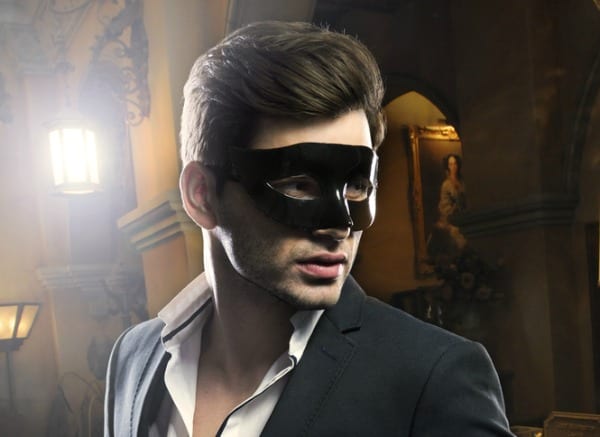Hero or villain? A matter of perspective – and choice
Hero or villain? A matter of perspective – and choice
Hero or villain? A matter of perspective – and choice
-
Hannah
-
Hannah


In my novel Aphrodite’s Tears, the heroine, Oriel, comes to work on the Greek island of Helios. Her new boss is Damianos (Damian) Lekkas, the owner of the island and a man with quite the reputation.
‘In ancient Greek, Damianos means master, tamer and conqueror. The name suits him well, you’ll find,’ Oriel is told. ‘The islanders call him Drakon Damian, Dragon Damian. Feared by everyone, he is himself fearless.’
Oriel is somewhat dubious about the image portrayed by the islanders of their ‘formidable leader’. After all, his estate manager tells her, ‘He hunts in the moonlight with the wolves and swims with the sea monsters in the deep and dark waters surrounding the island.’ She comes to see that the island is rife with ignorance and superstition; why, some people there even believe, in this day and age, that they are ruled by the gods of myth and legend!
And yet… when Oriel meets Damian, and begins to get to know him and the people of the island better, she can’t help but feel unsettled. I write:
Phrases had a dramatic quality – omens seemed to be hidden in every word; a sense of Greek tragedy fluttered in the air. She was glad to be here, on this savagely beautiful island that beckoned with its sense of mystery and antiquity, yet a strange feeling clutched at her heart, a sort of enchantment that made her feel uncomfortable.
Damian is the biggest mystery of them all, this man who is so powerful and seems to be plagued by darkness. ‘The Kyrios [master] is under the power of the lord of torment,’ whisper the gossips. So strong a leader is Damian that they declare they’d rather face the wrath of Hades, god of the underworld, than Damian.
Damian himself admits he can find affinity, of sorts, with Hades. He tells Oriel: ‘The gods shared the same weaknesses and violent passions as mankind. Anger, jealousy… desire. We are made in their image… Hades was consumed by his hunger for the beautiful Persephone and wanted to live with her forever. It’s no surprise that he would do anything to keep her, even kidnapping.’
Most people associate Hades with evil. He is depicted as cruel, cold, punishing. The Ancient Greeks were so frightened of Hades that they would do their utmost not to think of him; they would avert their eyes when making sacrifices to him; they would avoid using his name, and would instead call him the Unseen One.
The fear of Hades stemmed from fear of death itself. But Hades was not Death; he was the ruler of the underworld – the afterlife. In ancient depictions he wasn’t actually evil; he was stern, yes, and he did not suffer disobedience, but he was usually just. It was his job to maintain balance, not merely to exact suffering. Consider the story of Persephone. From one perspective, Hades was cruel in entrapping her in his realm for most of the year. From another, he had enough heart – enough humanity, we could say – to love her and to wish for her companionship.
As Damian points out in Aphrodite’s Tears, we are made in the image of the gods, which means they are surprisingly like us when you look closely. Hades is not all bad; much of his reputation relates to the role he must perform. So it is with ‘Dragon Damian’.
I am reminded of these words by JK Rowling: We’ve all got both light and dark inside us. What matters is the part we choose to act on. That’s who we really are.